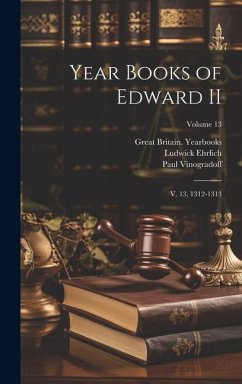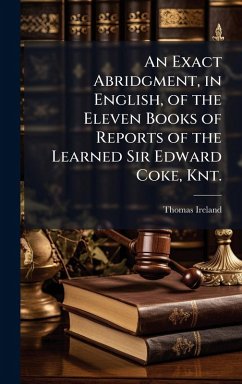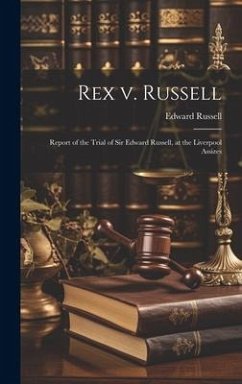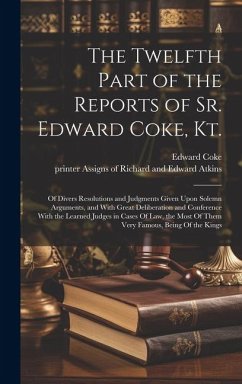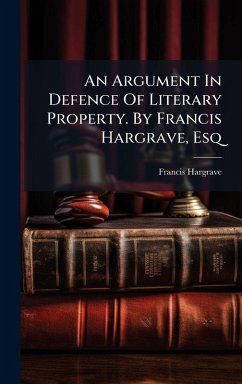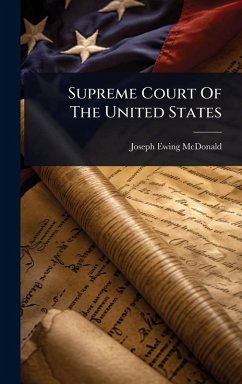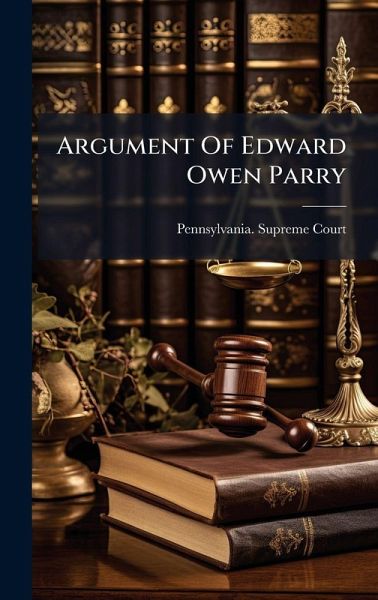
Argument Of Edward Owen Parry
Versandkostenfrei!
Versandfertig in über 4 Wochen
28,99 €
inkl. MwSt.

PAYBACK Punkte
14 °P sammeln!
This volume presents the legal argument of Edward Owen Parry, counsel for the heirs of Stephen Girard, in the case of The City of Philadelphia vs. Augustus Girard, et al., before the Supreme Court of Pennsylvania in 1863. The document offers detailed insights into the legal strategies and constitutional interpretations surrounding the disposition of Stephen Girard's estate. Providing a glimpse into 19th-century legal proceedings and the complexities of inheritance law, this argument sheds light on a significant case that engaged prominent legal minds of the time. It will be of interest to lega...
This volume presents the legal argument of Edward Owen Parry, counsel for the heirs of Stephen Girard, in the case of The City of Philadelphia vs. Augustus Girard, et al., before the Supreme Court of Pennsylvania in 1863. The document offers detailed insights into the legal strategies and constitutional interpretations surrounding the disposition of Stephen Girard's estate. Providing a glimpse into 19th-century legal proceedings and the complexities of inheritance law, this argument sheds light on a significant case that engaged prominent legal minds of the time. It will be of interest to legal historians, scholars of constitutional law, and those researching the history of Philadelphia. This work has been selected by scholars as being culturally important, and is part of the knowledge base of civilization as we know it. This work was reproduced from the original artifact, and remains as true to the original work as possible. Therefore, you will see the original copyright references, library stamps (as most of these works have been housed in our most important libraries around the world), and other notations in the work. This work is in the public domain in the United States of America, and possibly other nations. Within the United States, you may freely copy and distribute this work, as no entity (individual or corporate) has a copyright on the body of the work. As a reproduction of a historical artifact, this work may contain missing or blurred pages, poor pictures, errant marks, etc. Scholars believe, and we concur, that this work is important enough to be preserved, reproduced, and made generally available to the public. We appreciate your support of the preservation process, and thank you for being an important part of keeping this knowledge alive and relevant.



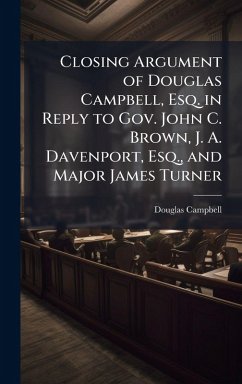
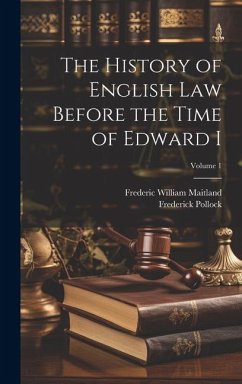
![Statutes Passed In The Parliaments Held In Ireland ... From The Third Year Of Edward The Second, A.d. 1310 [to The Fortieth Year Of George Iii, A.d. 1800, Inclusive] ... Cover Statutes Passed In The Parliaments Held In Ireland ... From The Third Year Of Edward The Second, A.d. 1310 [to The Fortieth Year Of George Iii, A.d. 1800, Inclusive] ...](https://bilder.buecher.de/produkte/75/75433/75433742n.jpg)
